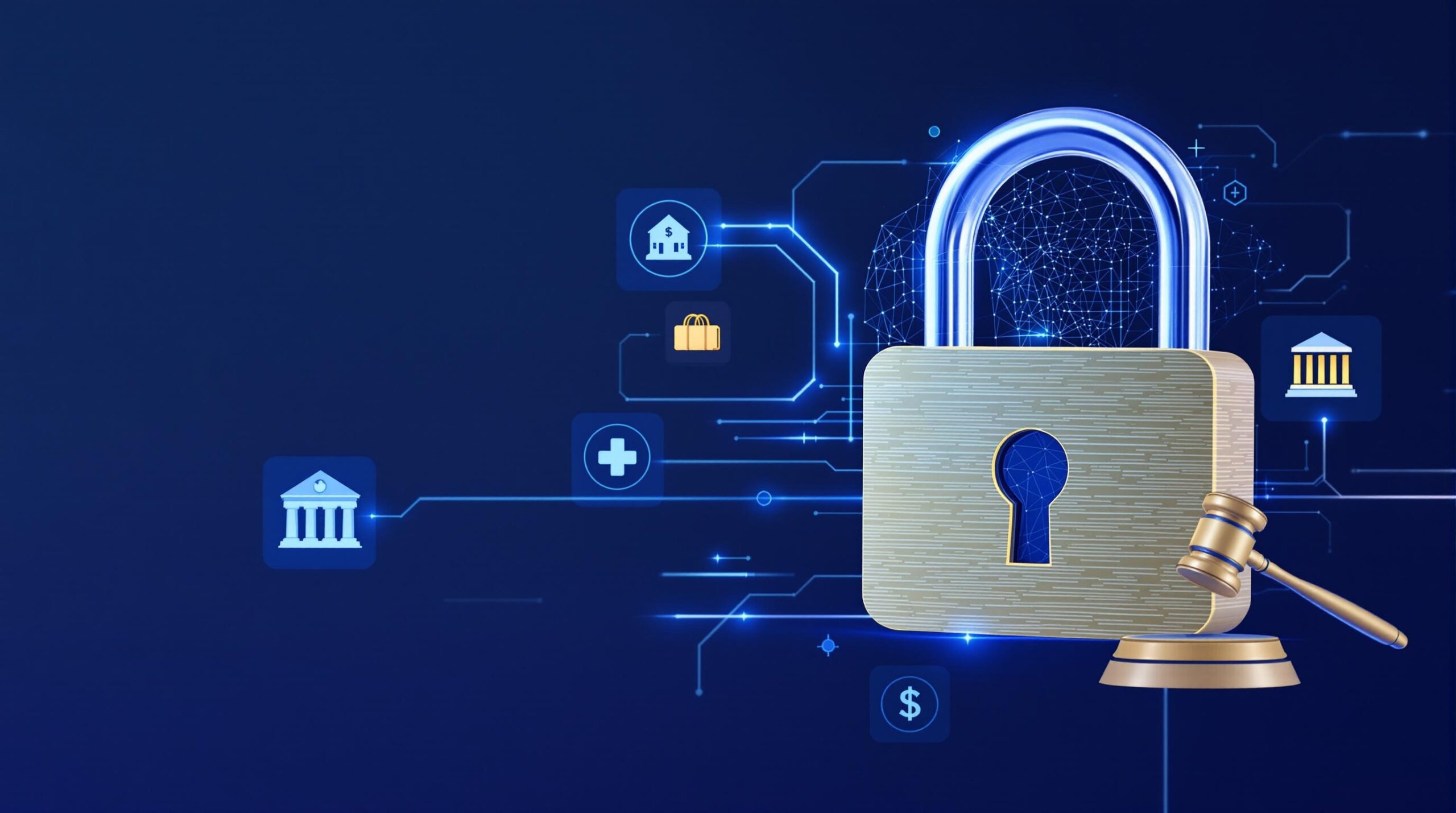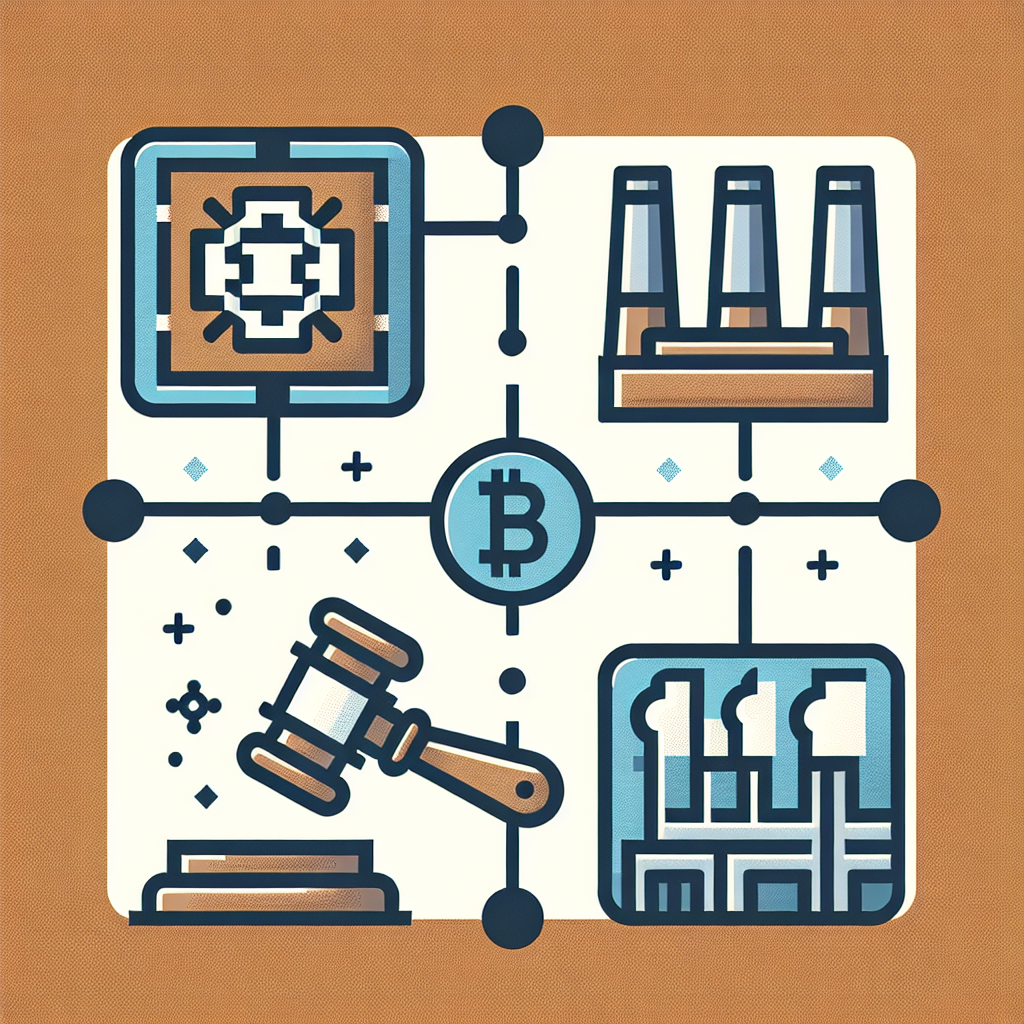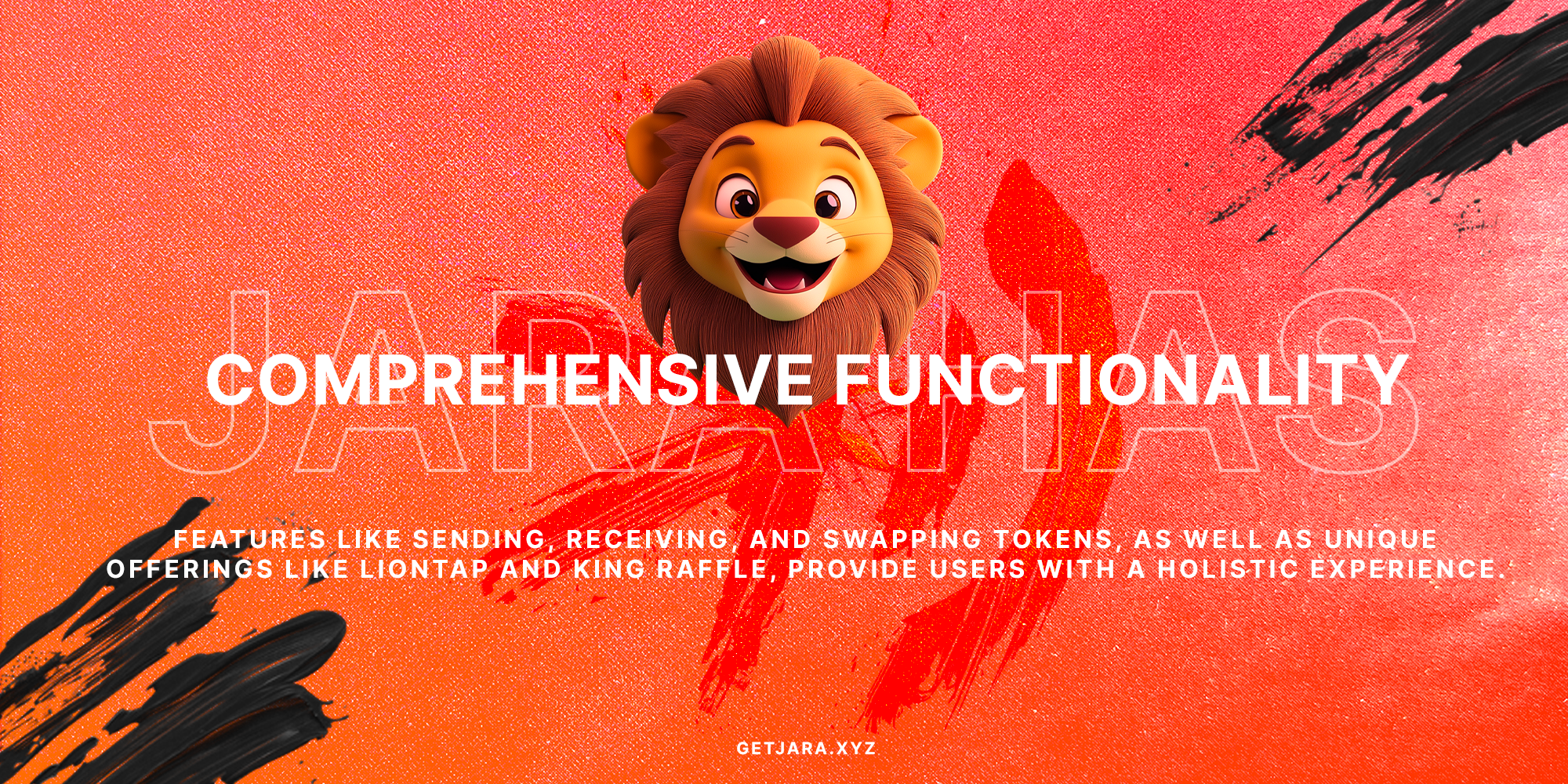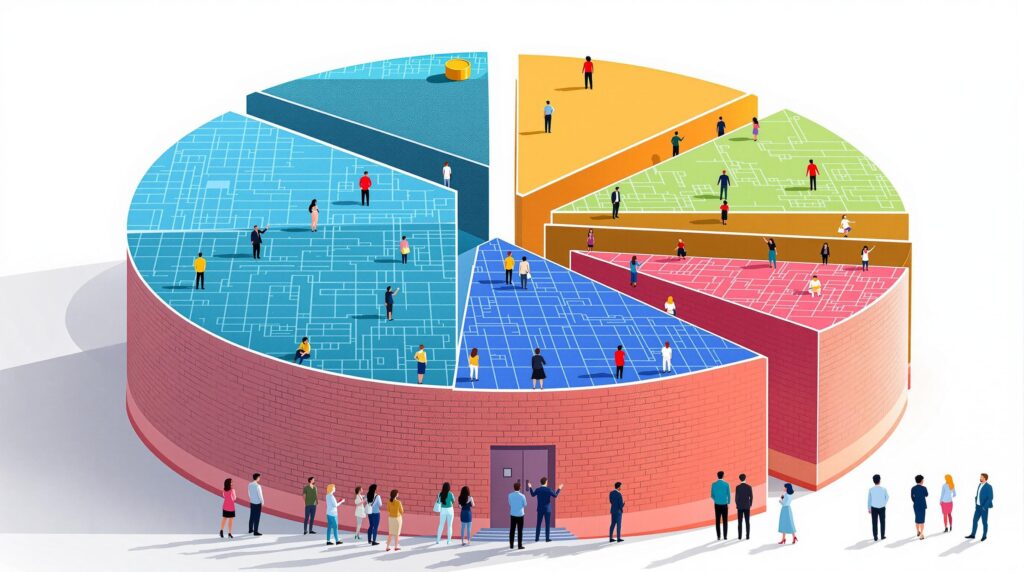Financial Services: A Revolution with Smart Contracts
Have you ever imagined your financial transactions being as simple as a few clicks, devoid of bureaucratic delays and excessive costs? The financial services industry in Africa is currently experiencing a significant metamorphosis, thanks to the advent of smart contracts. These innovative digital agreements are revitalizing the sector by automating complex transactions, minimizing the need for intermediaries, and enhancing trust and security.
What are smart contracts in finance? Smart contracts are self-executing agreements with the terms of the deal coded directly into them, allowing for automatic execution once conditions are met.
With banking systems in Africa often riddled with inefficiencies, adopting smart contracts is not merely a technological upgrade but a necessity. They address several pervasive challenges by providing a secure, transparent, and decentralized alternative to traditional financial services. Jara, with its robust infrastructure, leverages smart contracts to offer a smoother transaction experience through its ecosystem, which includes a decentralized multi-chain wallet and a proprietary Layer 2 blockchain.
- Automation of Transactions: By automating processes through smart contracts, the time needed to process payments is significantly reduced, making transactions faster and more reliable.
- Reduction in Costs: The elimination of intermediaries such as brokers and agencies decreases the cost of financial services, making them more accessible to the underbanked populations across Africa.
- Increased Security and Trust: Transactions facilitated by blockchain technology are immutable and verifiable, promoting trust among parties involved.
Utilizing blockchain technology, smart contracts ensure that each financial operation is securely verified, recorded, and executed without delays. This transformative approach is crucial for Africa, where traditional banking systems can be both costly and inaccessible. Platforms like Jara are leading the charge, efficiently bridging global capital with African assets, and fostering financial inclusion in a market poised to exceed $200 billion.
“Jara – Unlocking the Future to Africa’s Crypto Ecosystem.” By integrating $JARA into the banking landscape, financial interactions become smooth, secure, and innovative.
The role of smart contracts in financial services extends beyond transactions. They empower Africa’s burgeoning economy by creating a more inclusive and equitable financial environment. Jara’s engagement in infrastructure projects like the $6 billion Lagos airport tokenization exemplifies how smart contracts are not just reshaping financial transactions but also opening new investment avenues.
Further, Jara’s strategic partnerships, such as with Standard Chartered’s Libeara, illustrate the growing acceptance of blockchain solutions among traditional financial institutions. This collaborative approach underscores the potential of smart contracts to revolutionize banking and other financial services by enhancing service delivery and operational efficiency.
Why are smart contracts significant for financial inclusion? They provide a cost-effective, transparent framework for financial services, thus reaching previously unbanked populations with digital solutions.
As Africa continues to embrace digital transformation, the integration of smart contracts within its financial systems represents a monumental shift. This change not only spurs economic growth but also ensures that the benefits of modern financial services reach across the continent. Through Jara, individuals and businesses are poised to unlock new opportunities for wealth creation and economic empowerment.
With the proliferation of smart contracts, the future of financial services promises to be more seamless, secure, and accessible, driving Africa’s economic advancement. Stay connected with [how blockchain and smart contracts](https://example.com/the-role-of-smart-contracts-in-automation-how-blockchain-enables-trustless-agreements) are reshaping the financial landscape, and explore more about the transformative impact of this technology.
Understanding Smart Contracts: A Legal Revolution
In the rapidly evolving technological landscape, smart contracts are emerging as a unique tool that is reshaping numerous industries, including the legal sector. But what exactly are smart contracts, and how are they impacting the legal industry?
Smart contracts are self-executing contracts with terms directly written into lines of code, eliminating the need for traditional legal intermediaries.
The Impact of Smart Contracts on Legal Services
The integration of smart contracts in legal services is not merely an upgrade; it represents a transformational shift in how legal processes are executed. This digital innovation simplifies complex legal transactions, making what once took weeks, now possible in mere moments.
- Automation of Routine Tasks: Smart contracts handle typical legal tasks such as compliance checks and document verification automatically, freeing up significant time for law professionals.
- Cost Efficiency: By reducing the need for intermediaries, smart contracts cut down legal fees substantially, making legal services more accessible.
- Enhanced Compliance and Security: Embedded compliance within the contract ensures all parties meet agreed terms without the need for enforcement, reducing litigation risks.
Key Legal Implications
Smart contracts bring numerous benefits, but it’s crucial to be aware of their legal implications:
| Legal Aspect | Implication |
|---|---|
| Contract Enforcement | Automated execution ensures immediate compliance, reducing disputes. |
| Data Privacy | Blockchain’s security features provide superior protection of sensitive information. |
| Legal Frameworks | Evolving rapidly to incorporate smart contracts within traditional laws. |
“Smart contracts stand at the forefront of a technological renaissance within the legal industry, streamlining operations and enhancing trust.”
Practical Applications in the Legal Field
Several sectors within the legal industry are experiencing significant changes due to smart contracts:
Contract Management
Managing contracts is traditionally a tedious task but with smart contracts, all aspects from drafting to execution are streamlined:
- Immediate Execution: Contracts trigger automatically based on preset conditions, minimizing delays.
- Immutable Record-Keeping: Every action is recorded on the blockchain, ensuring transparency and accountability.
Property and Real Estate
In real estate, smart contracts facilitate seamless buying, selling, and leasing of properties:
- Secure Transactions: Blockchain ensures that all parties have confidence in the transaction process.
- Fraud Reduction: Immutable records on the blockchain minimize possibilities for fraudulent practices.
Future Insights and Developments
As the legal industry embraces smart contracts, firms like Jara are pioneering this transformation. Positioned at the interface of blockchain innovation and legal services, Jara offers tailored smart contract solutions that meet the dynamic needs of clients:
- Educational Resources: Providing insights and training to help law firms transition smoothly into this digital future.
- Collaborative Opportunities: Facilitating partnerships that enhance client service delivery in the realm of smart contracts.
Explore more by engaging with the wealth of resources and insights available on blockchain-driven transformations in the legal industry at Jara’s platform.
Conclusion: Embracing the Future
“Your Voice, Our Mission” – we champion your rights with the tenacity and dedication that has earned us the trust of our community members.
In summary, the legal industry’s shift towards smart contracts is not just inevitable but beneficial. As firms gradually depart from traditional methodologies and embrace digital solutions, the landscape for legal services is set to become more efficient, cost-effective, and transparent. For those ready to embrace this change, the opportunities are limitless.

The Revolution of Smart Contracts in the Legal Industry
In the rapidly evolving landscape of digital transformation, the legal industry finds itself on the brink of a significant overhaul thanks to smart contracts. No longer are these agreements just lines of code; they are reshaping the very fabric of legal services, making them more efficient and accessible. By automating legal processes and reducing the need for intermediaries, smart contracts are particularly advantageous for Africa’s burgeoning digital economy.
What are Smart Contracts?
Smart contracts are self-executing agreements where the terms are written directly into code. This code ensures that once the predetermined conditions are fulfilled, the contract automatically enforces and executes its terms.
“Smart contracts stand at the forefront of a technological renaissance within the legal industry, streamlining operations and enhancing trust.” – Legal Tech Innovator
Benefits of Smart Contracts in the Legal Sector
- Speed and Efficiency: By eliminating the need for intermediaries, smart contracts facilitate faster contract execution, reducing the time and costs associated with traditional legal processes.
- Reliability: The immutable nature of blockchain technology ensures that contract terms are tamper-proof and transparent.
- Cost-Effective: With fewer intermediaries involved, legal services become more affordable, opening the door to a broader client base.
Why consider smart contracts for your business? Embracing smart contracts can enhance efficiency, reduce costs, and guarantee compliance, marking a substantial advancement in how legal frameworks are executed.
Impact on Legal Compliance
The implementation of smart contracts significantly impacts legal compliance. Typically, enforcement of contracts involves lengthy legal procedures or arbitration. With smart contracts, immediate compliance is guaranteed as agreed-upon terms are automatically enforced. This minimizes disputes and accelerates legal procedures, transforming the legal landscape profoundly.
The African Context: New Opportunities and Innovations
Africa presents a fertile ground for deploying smart contracts due to its ongoing digital revolution. Platforms like Jara are leveraging this technology to create new paradigms of financial inclusion and economic empowerment.
Jara’s Strategic Positioning
Companies like Jara exemplify how smart contracts aren’t just disruptive—they’re creating entirely new opportunities for inclusive growth. By positioning itself at the convergence of blockchain technology and economic empowerment, Jara is spearheading Africa’s digital transition, especially in the legal sector.
“Jara – Unlocking the Future to Africa’s Crypto Ecosystem with Smart Contracts.” – Jara Innovator
Embracing the Future with Smart Contracts
- Efficiency: Legal services become streamlined with automated processes, catering to both small businesses and large enterprises alike.
- Inclusivity: Smart contracts lower the entry barriers for legal services, making them accessible to a wider audience across various socio-economic backgrounds.
- Sustainability: By reducing reliance on paper and manual processes, smart contracts contribute to environmental sustainability.
Understanding Potential Challenges
Despite the benefits, adopting smart contracts in the legal industry involves addressing several challenges, such as ensuring adequate regulation and improving technological literacy among clients and legal practitioners. Adapting to these innovations requires not just technology adoption but also shifts in policy frameworks and client education to fully realize the benefits.
Fueling the Future: A Call to Embrace Innovation
As this transformation continues, adopting smart contracts in legal practices isn’t merely an option—it’s an inevitability. For visionary firms like Jara, investing in this technology reflects a commitment to innovation and a strategic alignment with the future of legal services. When will your firm step into the future?
“Invest in $JARA and be part of Africa’s digital revolution—fueling innovation, security, and efficiency across various industries.” – Jara Partner
The Impact of Smart Contracts on Various Industries
Banking Industry
Smart contracts are revolutionizing the banking industry by enhancing security and transparency. But how exactly are they making an impact?
- Automation: Smart contracts automate transactions, reducing the need for intermediaries and minimizing costs for banks and customers alike.
- Security: Transactions become more secure with blockchain backing, cutting the risks associated with traditional banking.
- Efficiency: Continuous transaction monitoring and rapid execution enhance overall banking efficiency.
“Smart contracts and blockchain technology are not just tools—they are the new financial revolution that redefine banking as we know it.”
Real Estate Industry
Navigating the real estate market can often be like exploring a maze filled with daunting paperwork. How do smart contracts turn this around?
- Streamlining Transactions: Automated contract execution removes intermediaries, speeding up property deals.
- Reducing Fraud: By embedding agreements in code, smart contracts reduce the likelihood of fraudulent activities.
- Access to Global Investments: Platforms like Jara offer tokenization of large projects, democratizing access to real estate investments.
“Jara is not only about technology; it’s about opening doors to future opportunities in real estate.”
Healthcare Industry
In healthcare, managing patient records is crucial. How do smart contracts enhance medical record management?
- Data Integrity: A secure, decentralized method of managing patient records reduces the risk of data breaches.
- Streamlined Processes: Automating record transfers eliminates tedious, error-prone administrative procedures.
- Privacy and Security: Blockchain ensures only authorized access to sensitive medical information.
“Invest in $JARA to be part of a healthcare revolution with blockchain enhancing data security and patient outcomes.”
Legal Industry
The legal field is witnessing a transformation with the introduction of smart contracts. How are they changing legal frameworks?
- Efficiency in Compliance: Smart contracts automatically enforce terms, reducing lengthy legal disputes.
- Cost Savings: Automating contract management reduces overheads and resource allocation.
- Wider Access to Legal Services: By reducing costs, legal services become accessible to a broader population.
“Smart contracts are at the forefront of a technological renaissance in the legal industry, enhancing trust and reliability.”
Stock Trading Industry
Stock trading is frequently hindered by high fees and slow processes. How do smart contracts present a solution?
- Reducing Intermediaries: Automates trading processes, speeding up transactions and reducing costs.
- Enhanced Security: Blockchain technology ensures the security and integrity of each trade.
- Market Inclusivity: Lowering entry barriers allows more users to participate in trading activities.
“With smart contracts, we’re moving towards a future of secure, swift, and democratized trading.”

How do smart contracts enhance the efficiency in supply chains?
Smart contracts streamline supply chains by automating transactions and record-keeping. This reduces delays and errors, ensuring that processes move swiftly and transparently. They also facilitate real-time tracking of goods, providing all stakeholders with instant updates.
What role do smart contracts play in decentralized finance (DeFi)?
Smart contracts are essential in DeFi by enabling decentralized platforms to operate without intermediaries. They ensure that terms and conditions are executed automatically when predefined conditions are met, allowing for trustless transactions that are immutable and transparent.
Are smart contracts legally enforceable?
While smart contracts execute automatically based on code, their legal enforceability varies by jurisdiction. Some countries recognize them under traditional contract law, while others are still adapting their legal frameworks to incorporate this innovation.
How is the gaming industry utilizing smart contracts?
In gaming, smart contracts enable blockchain-based games to bring play-to-earn models to life. They facilitate secure in-game transactions and ownership verification of virtual assets, giving players more transparent control and value from their gaming activities.

Related Practice Areas
Explore these additional topics closely related to Smart Contracts that our firm specializes in, enhancing your understanding of this evolving legal landscape:
Hear From Our Satisfied Clients
Our dedication to excellence in Smart Contracts & Automation is evident in every case we undertake. The positive feedback from our clients is a testament to the hard work and dedication we consistently deliver.

Embrace the Future with Our Expertise in Smart Contracts
As industries worldwide evolve with the integration of smart contracts, the potential for innovation is limitless. Our team at Jara is here to help you navigate this transformative journey. Whether you’re in finance, healthcare, logistics, real estate, or insurance, our expertise is tailored to support your unique needs. Ready to take the first step towards embracing automation and efficiency?
“Your journey into the world of smart contracts and automation begins here. Let Jara be your guide in harnessing the power of technology to transform your industry.”
- Download the Jara app today: Android | iPhone
- Explore more: Visit our website at Jara to see how we’re bridging global capital to African assets.
Don’t just take our word for it. Reach out today and experience firsthand how Jara can revolutionize your business. Let’s embark on this journey together and bring unparalleled efficiency to your operations.
Top 5 Industries Being Disrupted by Smart Contracts
1. Financial Services
The financial services industry is undergoing a major transformation with the integration of smart contracts. These automated protocols reduce paperwork, enhance transparency, and minimize operational costs.
2. Real Estate
Real estate transactions are becoming more efficient with smart contracts facilitating faster property transfers, secure payments, and reliable ownership records.
3. Supply Chain Management
Enhancing the supply chain, smart contracts help track goods in real-time, reduce errors, and increase trust between parties through immutable records.
4. Healthcare
In the healthcare sector, smart contracts streamline patient record management, enhance data security, and facilitate automated insurance claims processing.
5. Insurance
Smart contracts in insurance automate claims processing, enhance fraud detection, and provide transparent customer interactions.
“Your Voice, Our Mission” – we champion your rights with the tenacity and dedication that has earned us the trust of our community members.

















